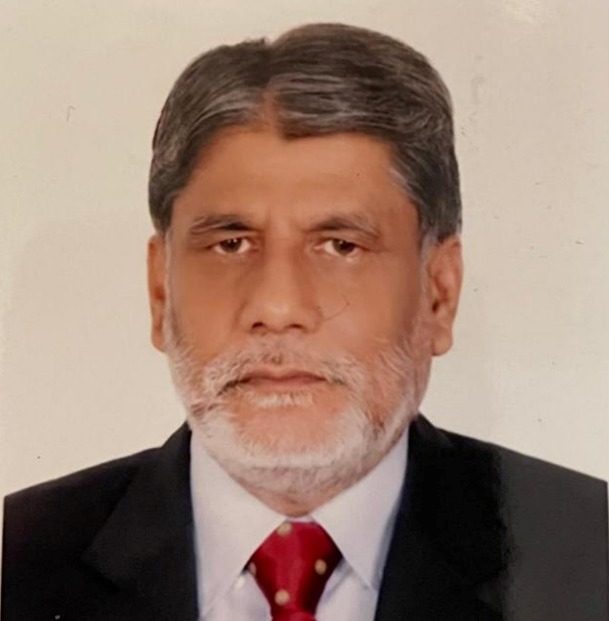
By Dr. Sheikh Akram Ali
In politics, hegemony is not just about dominance — it is about control, often subtle, sometimes overt, but always shaping the destiny of those under its influence. The word carries with it the weight of history, of regional superiority, and of the struggle to maintain autonomy in a world where stronger nations often dictate the course of the weaker. For Bangladesh, the story of hegemony has been one of persistence, pain, and repeated attempts at asserting national sovereignty in the face of external influence — most notably from India. Hegemony, at its core, refers to one state holding sway over others through political, economic, military, or even cultural means. This influence might not always be accompanied by the boots of soldiers or the clang of chains, but it is no less coercive.
The ability to shape ideology, mould economies, or exert pressure through diplomatic channels creates a grip that often proves harder to resist than brute force. Historically, the term took root in Ancient Greece, but its modern form has seen imperial Britain, Cold War-era America, and now regional powers like India exert their weight across nations. For the Muslim population of South Asia, the consequences of hegemonic politics have been deeply personal and transformative. The defeat in the Battle of Plassey in 1757 not only marked the decline of Muslim power but also opened the door to British colonial rule, which in its turn played heavily on division, dominance, and subjugation. The Muslims of India, caught between the might of the British and the rising Hindu majority, found themselves at a perilous crossroads.
It was in this context that Sir Syed Ahmed Khan emerged, recognizing the dangers of blindly aligning with a hegemonic Indian National Congress. His call for Muslim self-reliance through modern education and the establishment of Aligarh Muslim University was not just a reformist project — it was an act of resistance. Nawab Salimullah’s role in founding the All India Muslim League and the later leadership of Muhammad Ali Jinnah were extensions of this struggle. They recognized the hegemony at play in the Indian subcontinent and understood that Muslim survival required political autonomy. The creation of Pakistan was seen not merely as a geographic separation but as a rejection of hegemonic control by a dominant majority. Yet independence brought no end to the story of hegemony. For Pakistan, and more painfully for Bangladesh, the challenge of Indian regional dominance remained.
Following the secession of East Pakistan and the creation of Bangladesh in 1971, many believed that the price paid in blood would guarantee full independence. Instead, what followed was a different kind of subjugation. The myths of independence soon gave way to the reality of Indian political, economic, and military intrusion. From trade imbalances that drain Bangladesh’s economy to the widely speculated interference during the BDR carnage, India’s fingerprints have remained on critical events within the country. Political manipulation, too, has played a role. The rise and fall of governments in Dhaka have often mirrored shifts in New Delhi’s preferences. The allegation that India backed Sheikh Hasina’s return to power is not new, and while such claims are contested, they reflect the anxieties of a nation long haunted by external control.
Ziaur Rahman’s efforts to establish hegemony-free politics were a bold step, but he paid the ultimate price. Subsequent leaders, including Ershad and Khaleda Zia, navigated a tightrope of resisting and accommodating Indian interests. But it has always been a fragile balance. The political mistakes of the Bangladesh Nationalist Party — particularly the appointments of certain military chiefs — allowed adversaries to exploit openings, leading to extended periods out of power and erosion of public confidence. The so-called July Revolution of 2024, seen by many as the “Second Independence,” has reignited hopes for a new political chapter. Yet, concerns persist. The current leadership under Dr Yunus must be given the support needed to steer the nation toward genuine autonomy. Voices like Dr Col Oli Ahmad must be heard — not as relics of the past but as architects of a future built on fairness, reform, and resilience.
True independence demands structural reforms: fair elections, power-sharing mechanisms, constitutional safeguards against concentration of power, and an inclusive political environment where no single group monopolizes influence. Bangladesh must also look beyond its borders, forging stronger diplomatic ties with powers such as China and Pakistan to balance India’s overwhelming regional weight. Justice, too, must not be delayed. The people await accountability for the BDR tragedy and the July Revolution’s dark moments. Without justice, democracy remains hollow, and without a rule of law, external powers will always find allies within to undermine the national interest. Even the Rohingya crisis offers an opportunity — not to be used as political bait but as a platform to engage global allies, reinforce Bangladesh’s humanitarian leadership, and assert its sovereign voice.
The fear is not simply that India will dominate again — it is that Bangladeshi leaders, in their shortsightedness, might invite that domination. The nation’s future lies not in empty slogans but in mature, principled politics. If the country is to remain free from hegemonic chains, the people — always the true source of strength — must demand integrity, unity, and vision from their leaders. In the end, hegemony thrives not because it is strong, but because those it influences are divided and unsure. The fight for a sovereign Bangladesh must be fought every day — not just on the borders, but in classrooms, in courtrooms, in parliament, and above all, in the hearts of its people.
(The writer is an academic and political commentator in Bangladesh and can be reached at news@metro-morning.com)



